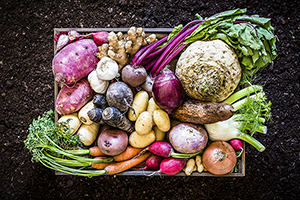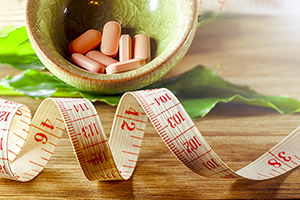




We’ve talked about nitric oxide a lot on Intelligent Medicine. Of course, it’s a circulatory enhancer. But did you know it also plays an important role in the health of the gut? The following article details how.
–Dr. Ronald Hoffman
This article contains content from one of our trusted sponsors.
The role the gut, and more critically our gut biome, play in the overall mechanics of a healthy body is only just being discovered. Many things can contribute to the health or destruction of the gastrointestinal flora – but you may be surprised to learn that addressing some basic principles of healing can have an overall positive impact on the health of our gut.
Nitric Oxide, often called the “miracle molecule”, makes no small contribution to a healthy gut. Nitric Oxide (NO), acts as a signaling molecule in our bodies, cueing vasodilation. Through this, NO governs circulation and microcirculation – the adequate function of which is the basis of healing and the removal of cellular waste and toxin from the body. NO also plays a huge role in a healthy mucus membrane layer, our first line of defense. Nitrates alone, before conversion into Nitric Oxide, also play a significant role in intestinal health. Nitrates down-regulate the inflammatory response, support and rebuild healthy microbiomes, prevent dysbiosis, prevents and repairs leaky gut, modulate immune and oncological pathways and promote a healthy gut/brain/immune axis.
So – NO is critical – but wherein lies the concern? Unfortunately, with age, we are less able to make Nitric Oxide without the consumption of adequate dietary nitrates. In fact, by the time we are 40, our production only at about 50%, and by the time we are 60, around 15%.
Fortunately, fueled by adequate dietary nitrate, we can kick on NO-producing mechanisms in the body and further improve the body’s ability to make its own NO.
Studies show that is takes 300-400mg of nitrate to make the desired physiological changes like a decrease in blood pressure or increase in exercise endurance. That is approximately equal to 5oz of spinach or 7oz of beets. Veggie concentration is variable, though. Veggies grown in different environments under differing conditions have varying amounts of nitrate. In fact, organic veggies, on the whole, have a lesser amount of nitrate than non-organic. It is estimated that the US population consumes about 150mg of nitrate per day over 2-3 meals. We are a nitrate deficient population. Nitrate supplements, on the other hand, provide a standardized, clinical amount of nitrate in each dose, equal to that of 5oz of spinach of 7oz of beets.
For years, I have been recommending Berkeley Life nitrate supplements to patients and doctors alike. Berkeley’s two-capsule daily dose makes it easy to incorporate Nitric Oxide support into your daily healthcare regimen. I recommend patients to take their capsules in the morning to set them up for a full day of boosted blood flow. Because Nitric Oxide decreases with age, I recommend it to all my patients who are over 40, or any patients taking medicines for heartburn, gastrointestinal concerns, or using antibiotics. The use of Berkeley Life’s supplement boosts beneficial blood flow and helps support the healthy function of these systems and set patients up for a foundation of total health.
Take advantage of the benefits of Nitric Oxide in your regimen – head to Berkeley Life’s website and use code “HOFFMAN” for 10% off your order and free shipping.
Though we think of declining estrogen as the hallmark of menopause, it's actually common for…

Up to 12 percent of Americans have ulcers at some point in life. Peptic ulcers…
Gallbladder disease is a modern illness. An estimated 20 million Americans have gallbladder disease. The…

This past week we were regaled with headlines like: High levels of niacin may increase…

March is National Nutrition Month and, needless to say, good nutritious food is essential to…

I recently attended the Integrative Healthcare Symposium (IHS), an annual conference held here in Manhattan. The…

Q&A with Leyla, Part 1: A Nicotine Vaccine

Our virtual voicemail is open 24/7, so there's no need to wait to submit your questions for Dr. Hoffman. Leave a message, and you may hear your question featured on the Intelligent Medicine radio program!